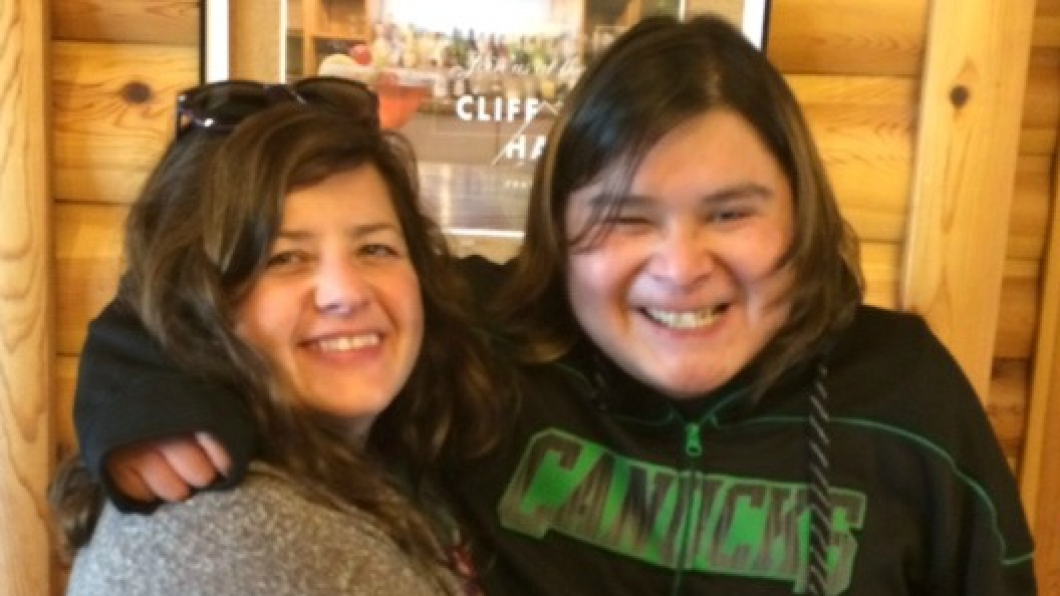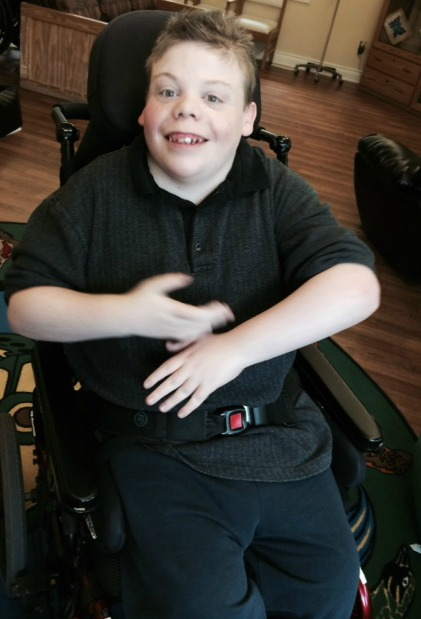
Wanted: Your ideas on how to make services better
Ontario youth with disabilities and chronic health needs have a unique opportunity to tell government what they need to live a full, satisfying life and how children’s services can change to better support them. The I Have Something To Say project by the Provincial Advocate for Children and Youth seeks submissions from children, teens and young adults who’ve used pediatric services. The deadline to contribute is International Day of Persons with Disabilities on Dec. 3. BLOOM interviewed Janis Purdy, child and youth advocate, to learn more.
BLOOM: What’s a simple way of describing the Provincial Advocate?
Janis Purdy: We elevate the voices of children and youth to ensure that their wishes and perspectives are considered when decisions are made about their lives. Our mandated areas are youth justice; children’s mental health; child welfare; children and youth with special needs; and First Nations children. Youth with special needs are in our mandate because they receive services in hospitals or through service providers or the Ministry of Children and Youth Services.
BLOOM: What is the I Have Something To Say project?
Janis Purdy: It’s a project designed to enable children and youth with special needs to participate in and lead changes to programs, services and legislation. It gives youth access to decision-makers and enables them to influence policy and social change.
BLOOM: Who would you like to hear from?
Janis Purdy: They might be children with cognitive or developmental disabilities or any kind of physical or complex health concerns. They might live in a facility or be in the care of their family. We are looking for children and young adults of any age who have had experience with the child and youth system.
On our I Have Something To Say youth advisory, we have youth with really diverse backgrounds. Some have medical issues, some are living with autism, some have physical or developmental disabilities, some are siblings or family members. They are under and over 18. Some participate with the support of caregivers and some come on their own. They seem to be connected to each other in a really special way and want to make change in Ontario.
BLOOM: What issues do you want to hear about?
Janis Purdy: We want youth, with their lived experience, to tell us what they think needs to change. What services are good, what aren’t good and where are the hot spots?
So far, we’ve had youth express concerns about moving from children’s to adult services and the lack of services after age 18; about not getting supports they need to live with family, so they have to move into a more institutional setting; and about the education system. One student with autism wants to be in a regular classroom with accommodations, and doesn’t want to be bullied and isolated.
Many youth feel invisible and they want people to know more about their lives. Some want the opportunity to find their voice. They say 'Our whole lives we’ve had doctors, nurses and therapists telling us what we should do and must think, and sometimes it feels like I don’t even know if I have a voice.' One boy wants people to know what it’s like to live with his painful disease and how his parents have to fight every month to get the money he needs for bandages.
BLOOM: How can children and families participate?
Janis Purdy: There are several ways. We have a youth advisory committee that runs every month on a Saturday and works on projects in between. For kids who can’t reach us, we have a narrative project where we’ll come to your house to do an interview. The plan is to eventually compile these narratives into a book because it’s really the stories of children’s lives that are most interesting. Provincial Advocate Irwin Elman will make recommendations to government ministers and decision-makers in Ontario, and every recommendation will come from the kids. The book will be presented to decision-makers as a resource guide to learn more about these families and how change is possible.
On our website we’re gathering submissions from youth. They can be in any format: a video, a piece of art, an audio recording, something written by the child, or by their parents, or words transcribed for the youth. We are making an effort to listen in every way possible. Also, Irwin is available to come out to speak to groups and youth can contact him directly at irwin.elman@provincialadvocate.on.ca.
BLOOM: What if a child can't communicate in conventional ways?
Janis Purdy: Contact us and we’ll find a way that suits each child and family best. Tell us how we need to listen, or who we need to listen to, and we’ll do it. I’ve already done interviews with families whose children can’t speak. We have a sibling on our youth advisory who feels like she’s participating on behalf of herself and her brother, who died last year. She says: ‘I’m here for the two of us.’
BLOOM: When would we expect to see outcomes from this project?
Janis Purdy: There’s no ‘end’ to the project because we’ll keep doing this as long as youth in Ontario say there’s a need for change. Sometime later in 2015 Irwin will take everything he’s learned in different forms in a public way to decision makers.
To make a submission, go to the I Have Something To Say website or e-mail nikie.tentoglou@provincialadvocate.on.ca. To share your story in our narrative project or to join our youth advisory call Janis Purdy at 416-325-5669 or e-mail janis.purdy@provincialadvocate.on.ca. Everett, pictured with his mother Rhonda above, and Joshua, below, are both youth advisors.
